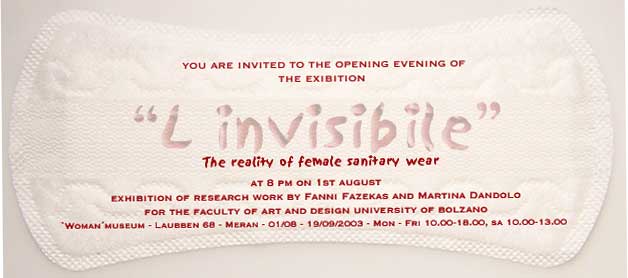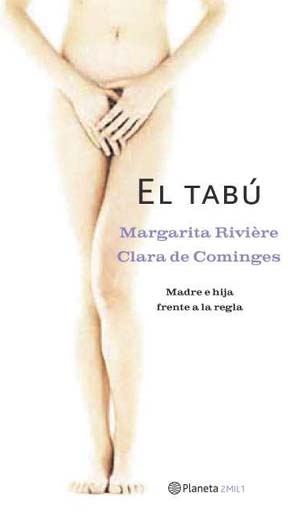This conference will focus on the importance of myth in modern society.
We will explore how the new understanding of the nature and function of
myth revealed by the work of C. G. Jung, Joseph Campbell, James Hillman,
Mircea Eliade, and their followers has revolutionized the thinking in many
areas of modern life. Like previous ITA events, the format of this meeting
will combine lectures, experiential sessions, rituals, music, dance, and
visual arts. The conference coincides with the hundredth
anniversary of the birth of Joseph Campbell, the greatest mythologist of
the twentieth century.
Steve Aizenstat, Angeles Arrien, Chris Bache, John Buchanan, Cathy Coleman,
orge Ferrer, Christina Grof, Paul Grof, Stanislav Grof, Michael Grosso,
Michael Harner, Sandra Harner, Martina Hofmann (whose art
is on this MUM site), Lorin Hollander, Chungliang Al Huang, Rashna Imhasly,
Sean Kelly, Jack Kornfield, Stanley Krippner, Robin Larsen, Stephen Larsen,
Ervin Laszl, Bokara Legendre, Bernard Lietaer (unconfirmed), Albrecht Mahr,
Vladimir Maikov, Robert McDermott, Ralph Metzner, Jane Middelton-Moz, Michael
Murphy, Wes Nisker, Jill Purce, Ram Dass, Peter Russell, Rupert Sheldrake,
Karan Singh, Brother David Steindl-Rast (unconfirmed), Richard Tarnas,
Charles Tart, Robert Venosa, Frances Vaughan, Roger Walsh, Terra Wise
www.wuhi.org
Women's Universal Health Initiative
Women's Universal Health Initiative is by women for women - if you have
ideas, events, information, or comments to share, send them to Info@wuhi.org
In these difficult times, all advocacy groups are struggling financially.
WUHI is no exception. Please consider becoming a member to support the
continuation of the web site and our work on universal health care.
You become a member of WUHI with a tax-deductible donation of any amount.
Go to the WUHI website to join online, or send your donation to WUHI, Box
623, Boston, MA 02120.
Health Care Reform: a Women's Issue
Anne Kasper
Anne Kasper, a long time women's health activist, discusses why health
care reform is a women's issue. Anne is an editor, with Susan J. Ferguson
of Breast Cancer: Society Shapes an Epidemic, a powerful and informative
book on the politics of breast cancer.
To read the complete article: http://www.wuhi.org/pages/articles.html
<http://www.wuhi.org/pages/articles.html%A0>
Health care reform has long been a women's issue. Since the beginnings
of the Women's Health Movement in the late 1960s, women have known that
the health care system does not work in the best interests of women's health.
When we think of the health care system and its component parts doctors,
hospitals, clinics, and prescription drugs, for instance we are increasingly
aware that the current system is not designed to promote and maintain our
personal health or the health of others. Instead, we are aware of a medical
system that delivers sporadic, interventionist, hi-tech, and curative care
when what we need most often is continuous, primary, low-tech, and preventive
care. Women are the majority of the uninsured and the under insured as
well as the majority of health care providers. We are experts on our health,
the health of our families, and the health of our communities. We know
that we need a health care system that must be a part of changes in other
social spheres -- such as wage work, housing, poverty, inequality, and
education -- since good health care results from more than access to medical
services.
Featured Site
UHCAN - Universal Health Care Action Network
http://www.uhcan.org/
UHCAN is a nationwide network of individuals and organizations, committed
to achieving health care for all. It provides a national resource center,
facilitates information sharing and the development of strategies for health
care justice. UHCAN was formed to bring together diverse groups and activists
working for comprehensive health care in state and national campaigns across
the country.
Their annual conference, planned for October 24-26, 2003 in Baltimore,
MD, is one of the best grass-roots action conferences available. They consider
universal health care justice from many perspectives.
Visit UHCAN's website for resources, analyses of health reform issues,
and more information on their campaigns for health care justice.
Proposals, Policies, Pending Legislation
Health Care Access Campaign - the Health Care Access Resolution
http://www.uhcan.org/HCAR/
Health care in America is unjust and inefficient. It costs too much,
covers too little, and excludes too many. As the economy deteriorates,
it is rapidly getting worse.
One in seven Americans, 80% of whom are from working families, lack
health insurance and consequently suffer unnecessary illness and premature
death. Tens of millions more are under insured, unable to afford needed
services, particularly medications. Health care costs are a leading cause
of personal bankruptcy. Communities of color endure major disparities in
access and treatment. Double-digit medical inflation undermines employment-based
insurance, as employers drop coverage or ask their employees to pay more
for less. State budgets are in their worst shape in half a century. Medicare
and Medicaid are caught between increases in need and a financial restraints.
In the 108th Congress, the Congressional Universal Health Care Task
Force will introduce the Health Care Access Resolution, directing Congress
to enact legislation by 2005 that provides access to comprehensive health
care for all Americans. Legislators, reacting to the urgency for health
care reform, will likely introduce several proposals in this Congress.
Check out the link to learn more about the resolution and how you can
contribute to it.
Proposed Health Insurance Tax Credits Could Shortchange Women
http://www.cmwf.org/programs/insurance/collins_creditswomen_589.pdf
Commonwealth Fund report, reviews federal policies designed to help
low-income adults buy health insurance, which have focused on tax credits
for purchasing coverage in the individual insurance market. This analysis
of premium and benefit quotes for individual health plans offered in 25
cities finds that tax credits at the level of those in recent proposals
would not be enough to make health insurance affordable to women with low
incomes.
Time for Change: the Hidden Cost of a Fragmented Health Insurance
System
http://www.cmwf.org/programs/insurance/davis_
An excellent overview by Karen Davis, President of The Commonwealth
Fund, of factors in the US health care system that lead to it being the
most expensive health system in the world.
A Place at the Table: Women's Needs and Medicare Reform
By Marilyn Moon and Pamela Herd
http://www.tcf.org/Publications/Order.asp?ItemID=199
This book, published by the Century Foundation, shows that women have
different retirement needs as a group than men. Women are more likely to
require long-term care services because they live longer and are more likely
to suffer from chronic diseases. Suggests guidelines that would make Medicare
reforms work for women, including how to deal with comprehensiveness, affordability,
access to quality care, and the availability of information.
Women in the Health Care System: Health Status, Insurance, and Access
to Care
http://www.meps.ahrq.gov/PrintProducts/PrintProd_Detail.asp?ID=78
Report from the Agency for Healthcare Research and Quality (AHRQ) focuses
on women in the United States in 1996. Health insurance status is examined
in terms of whether women are publicly insured, privately insured, or uninsured,
and whether insured women are policyholders or dependents.
Health Insurance Coverage in America: 2001 Data Update
http://www.kff.org/content/2003/4070/
Although not specific to women, this resource contains valuable information
about women and health insurance coverage and provides valuable information
and facts for general presentations on universal health care. The chart
book provides year 2001 data on health insurance coverage, with special
attention to the uninsured. It includes trends and major shifts in coverage
and a profile of the uninsured population.
Resources
Health Care Links
http://www.pnhp.org/links/
Links to state, national and international organizations working for
single payer health care and universal health care. A resource of Physicians
for a National Health Program - check out the site for many other resources
and excellent factual information on a single payer health care system
[ http://www.pnhp.org/links/ <http://www.pnhp.org/links/> ].
Universal Health Care Organizations in Your State
http://www.everybodyinnobodyout.org/index.htm#regnl
A list of state organizations working for universal health care. Resource
of Everybody In, Nobody Out [EINO: http://www.everybodyinnobodyout.org
]. Not all states represented.
Families USA New Online Service
http://fusa.convio.net/site/R?i=6d26XZDs_24DRYvcWDDmjg .
Families USA online service to provide registered users with the following
benefits:
Free bimonthly newsletters with articles on health policy issue.
Announcements about organization events.
Discounts on publications
Kaiser Network for Health Policy - Publications and Reports
http://www.kaisernetwork.org/health_cast/hcast_index.cfm?display=links&hc=806&linkcat=61
<http://www.kaisernetwork.org/health_cast/hcast_index.cfm?display=links&hc=806&linkcat=61>
Reports and publications on health policy, access, uninsured and insurance.
Supported by the Kaiser Family Foundation. Good source of information.
Calendar
May 8 - 9 2003
Health Policy and the Underserved
http://www.jcpr.org/conferences/event_description.cfm?conid=124
Sponsored by the Joint Center for Poverty Research, looks a social,
economic, and outcomes of policies for the underserved.
May 14-16, 2003
2003 Managed Care Law Conference
Colorado Springs, CO
http://www.healthlawyers.org/programs/prog_03mc.cfm
Co-sponsored by American Health Lawyers Association and American Association
of Health Plans. Presents legal issues facing health plans and providers.
October 24-26, 2003
National Universal Health Care Action Network [UHCAN] Conference
Baltimore, MD
http://www.uhcan.org/
One of the best grass-roots action conferences available. Considers
universal health care from all its perspectives. Check out their website
for an overview of their orientation.
November 15, 2003
Physicians for a National Health Program Fall Meeting
http://www.pnhp.org/action/?go=events
San Francisco, CA
November 15 - 19, 2003
American Public Health Association Annual Meeting
San Francisco, CA
http://www.apha.org/meetings/
Meeting of professionals in public health. Has many sessions on health
care reform and women's health, including universal health care.
January 22-23, 2004
National Health Policy Conference
Washington, DC
http://www.academyhealth.org/nhpc/
Wide-ranging discussions of health policy, including health care reform
and universal health care.
Women's Universal Health Initiative
PO Box 623
Boston, MA 02120-2822
617-739-2923 Ext 3
www.wuhi.org <http://www.wuhi.org>
info@wuhi.org



